Let's Face It!
When heading out for a swim at the pool or beach, lifesaving is probably not on your mind. You're most likely thinking about your
swim workout, your next race, or perhaps most importantly: cooling off and having fun in the water. The most common safety concern on the minds of others I swim with seems to focused on sun exposure ("W
ear your sunscreen or you'll get a sunburn!").
Even if you are confident in your own ability, please be aware of this sobering fact: there are plenty of non-swimmers out there,
and you might have to save a life when you least expect it.
A Little Bit About Me
I'm not a great swimmer. I never brag about my swimming - and for good reason. My grandfather,
Adolph Kiefer, is an Olympic Champion backstroker. My father and uncle were both college swimmers and high school state champions. My wife Stacey swam through college and continues to post top times in Chicago area triathlons. Despite all this and having immediate access to the greatest
swim gear in existence, I'm still slow.
But I'm a good enough swimmer to save a life - and I learned this by accident.
Accidental Lifeguard
Stacey and I had spent a "quiet" Fourth of July mountain biking in Kettle Moraine State Forest, in southeastern Wisconsin. As we were heading home, we decided to stop at one of her favorite Lake Michigan swimming spots, a secluded beach in Racine, Wisconsin, for a quick open water swim. We parked, scrambled down a steep bluff, and estimated the water temperature with our feet. Braving Lake Michigan water temperatures in early July may not sound challenging, but let me tell you - it can be brutally uncomfortable. Even on days when winds haven't blown more comfortable water temperatures far out from land, swimming can be quite a test of one's pain tolerance.
And on that day, Fourth of July 2003, the water was very cold. We decided to cancel our swim and head back to our car. It was at this point that I heard something- a faint noise from offshore. We stopped and listened, and before long, the sound repeated. Still faint, but unmistakable, someone was calling for help.
I scanned the horizon and saw a tiny orange kayak out in the lake, quite some distance from shore. "Help me!", called the voice, and at this point I was able to see an arm waving above the kayak, beckoning for assistance. Without hesitation, we entered the water and began to swim towards the boat.
Swimming In Cold Water - Swim Fast!
When confronting cold water, Stacey has always been a proponent of swimming rapidly to overcome the initial shock - and this technique seems to work well. I've never been able to figure out if this is a distraction technique or a true acclimatization tactic, but it works. Perhaps the best distraction from the discomfort was a thought that occurred to me as we covered the near 1/4 mile distance of open water: what would we do when we reached the kayak?
This question was soon answered for us - with no
rescue tubes, rescue cans, or
water rescue equipment of any kind - we had only one course of action - to tow the capsized kayak with its exhausted, hypothermic pilot to safety. This wasn't easy, but both of us were able to swim the considerable weight back to shore.
Here's To The Lifeguards - Here's To The Swimmers
Lifeguarding is a difficult job that requires great skill and responsibility. It isn't an accidental role and requires full concentration because guards have to constantly scan for (and be completely aware of) potential danger and life-threatening situations.
However, when no lifeguards are on duty, the situation may only involve swimmers.
So think about it swimmers. Strive to sharpen your awareness and maintain your abilities - because the world needs more accidental lifeguards.
Without lifeguards, I wouldn't be alive today - but that's a story for another day.
Be safe out there,
Robin Spencer Kiefer
P.S. Check out our recent post on open water swim safety tips!
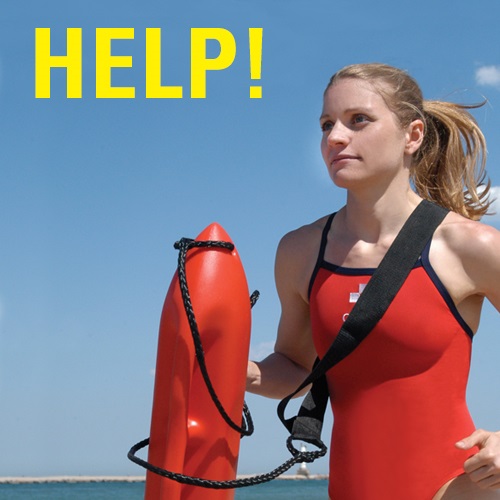


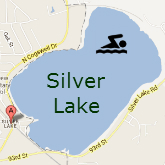
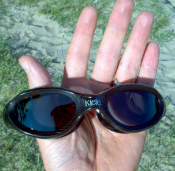
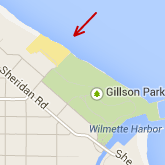


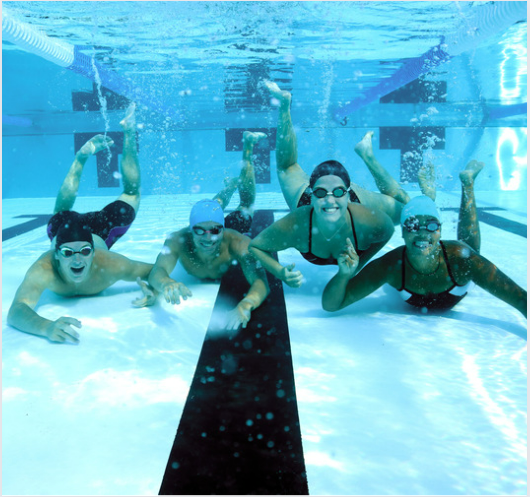
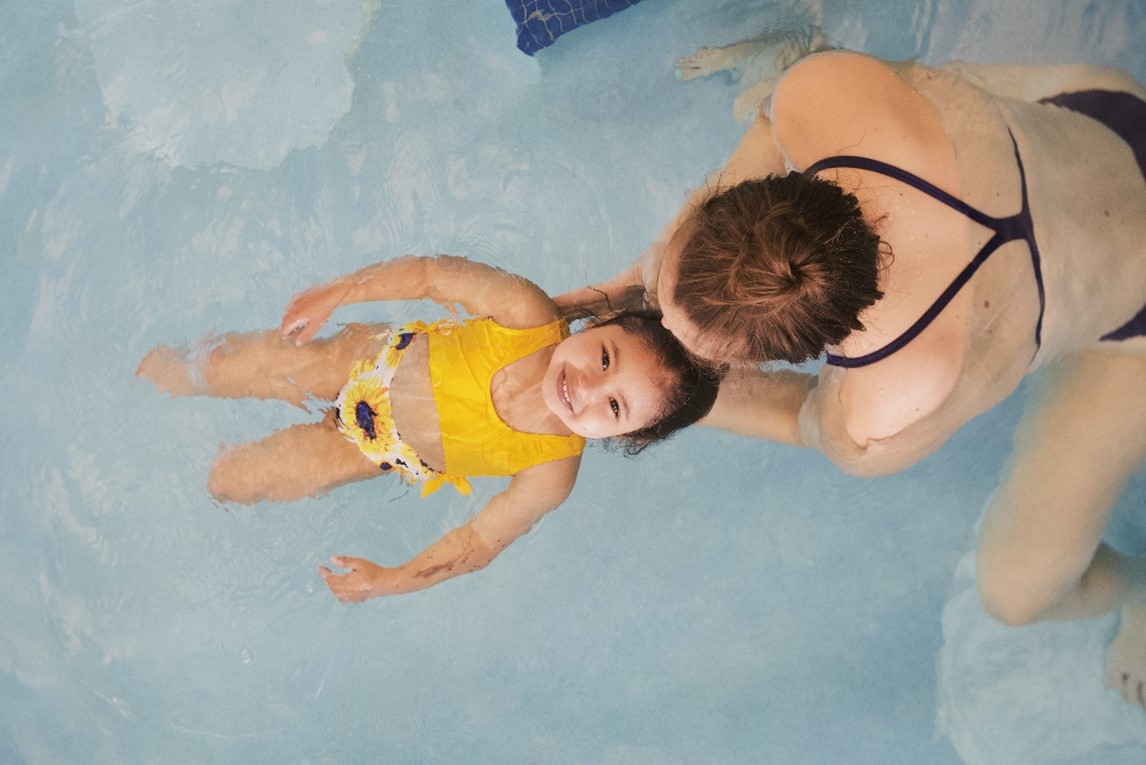

Leave a Comment
Your email address will not be published. Required fields are marked *